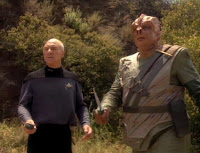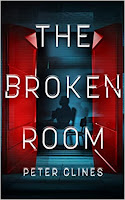If you’re reading this, it probably won’t come as a shock to you, but… people love stories. Literally, since the start of recorded history. They love reading them. Hearing them. Watching them. They love having their emotions played with and their expectations subverted, and they also love comfortable, familiar tales and they can sink abck . They love made up people and places and event that never happened.
Believe it or not, some people also love telling stories. Pulling people and places and moments out of their head and presenting them to an audience. They love the act of stringing these specific words together in this specific order and knowing it’s going to get that response.
Another thing people love is, well, easy solutions. If there’s a way we can get around doing some work, we’ll usually do it. Yeah, this takes sixteen steps, but is there a way I could do it in fifteen? Or maybe eight? Could I skip over the first dozen steps and maybe just do those last four?
But sometimes we just can’t cut corners. For complexity reasons or safety reasons or just because, look, this is how long it takes to do this. As much as we want ease and simplicity, there are some things in life that take time and effort.
So, with that in mind, let’s talk about the Warren Commission.
A week after the assassination of JFK in 1969, newly sworn-in President Johnson ordered Chief Justice Earl Warren to investigate the killings. Warren assembled a group of congressmen and specialists to gather evidence and quash all the conspiracy theories that were already starting to run wild throughout the country.
The Commission’s final report, alas, didn’t really help calm fears there was a big cover-up going on. One of the more controversial declarations it made was that a single shot caused all of the non-fatal wounds to both President Kennedy and Texas Governor Connally, a shot that changed directions multiple times during its flight. Even more amazing, said bullet was miraculously found on the floor in Connally’s emergency room, having supposedly fallen out of his bloody thigh, completely clean and not even deformed…
The popular term we got from this report, which you’ve probably heard before, was the magic bullet. A small, simple thing which defies every bit of common sense to produce borderline-miraculous results. Some might even say… magical results.
Some folks think to be a successful writer, it’s just a matter of finding a magic bullet. I mean, all these folks talk about spending years trying to “hone their craft” but it can’t actually be that difficult, right? Surely there’s a trick that’ll let me skip to the front of the line—an easy way to bypass all those early, boring stages—and get to the point where people are fighting over my manuscript.
So let’s talk about some of the magic bullets folks spend time looking for..
The magic word
Back when I read contest screenplays for food, a common thing to see was scripts entered into a very niche contest with clearly minor additions to make them fit the requirements of said niche contest. I saw countless stage plays that had a few camera directions sprinkled on them. More than a few token minorities and painted-on sexualities. My favorite, however, had to be the sex comedy that showed up in the pile for a faith-based, prayer-centric screenplay contest, where the protagonist desperately prayed to God oh please, please Lord, let me get this woman out of her clothes!
Storytelling doesn’t work this way, either with audiences or publishers. I can’t expect that using this word or that one (or this phrase or that label) is going to be an instant key to success. I definitely shouldn’t expect that it’ll make people overlook certain other glaring issues my work may have.

The magic genre
Pretty sure since the dawn of storytelling there’ve been folks trying to jump on the hot market bandwagon. Thag gets all the applause for his mammoth-hunting story? Well, Bron have mammoth hunting story, too! Two mammoths! With lasers mounted on skulls!
With the desire to make a sale, some folks try to follow the “hot” markets. Right now young adult science fiction is hot? Guess I’ll write YA sci-fi. Historical romance is hot? Did I mention my YA sci-fi is a time travel story with a historical romance element (mammoths in love)? What’s that? Horror adventure is hot? Guess I better dump the YA and start over
The issue here is timing. Even if I lunge at that hot new genre, there’s simply no way to get a manuscript done, polished, and in front of someone before the trend’s passed. Seriously, none. Especially when you consider most publishers are already working a year or so ahead of the current market.
Worth noting there are folks who write very timely books and they write them very fast, but a lot of them almost inherently don’t have much of a shelf life. They sell really well for a brief window and then usually never again. I need to decide if I’m okay with that. Assuming I even have the ability to do it
Don’t try to follow a market trend. Just write the horror/ romance/ faith-based/ mystery/ sci-fi story you want to tell and make sure it’s the absolute best one anyone’s ever read. That’s what’ll catch people’s attention and make hundreds of others rush to hop on my bandwagon.
The magic aesthetic
More than a few folks think the secret to success—real, worthy success—is to create art. Actual literature which will be recognized immediately for its inherent worth and my inherent genius. That deep, overwritten sort of art that makes grad students start to feel warm in the middle of intellectual discussions.
This one’s a double edged sword, because a lot of the folks going for this bullet end up taking it in the chest (I believe the gentleman ordered a metaphor, mixed over ice?). It’s my firm belief that attempts to create art usually lead to forced scenes, painful dialogue, and unbelievable characters. Plus, that same art then becomes a blanket excuse to let the writer brush off any comment or criticism their work may get. After all, only the sophisticated and intelligent people are going to understand art. If they don’t understand, it just proves they’re not intelligent and thus not qualified to judge it, right?
As I’ve said many times before—don’t try to create art. I just want to tell the best story I can the best way I can tell it. Let somebody else worry about if it’s high art or if it’s just some pedestrian, pop-culture crap that’s going to sell a million copies and get a movie deal.
The magic message
Close behind the above bullet is the belief a story needs to have a deep, powerful meaning. Every element should be loaded with subtext. Each page should make the audience rethink their beliefs.
While it’s great to have subtext, a writer shouldn’t be fighting to force it into their story. Likewise, if I’ve come up with a clever metaphor which applies to the catchphrase/ scandal/ fashion of the moment, much like the special genre above, odds are that ship will have sailed loooooong before anyone ever sees my work.
If I feel like my work has to have a greater meaning… maybe I should ask myself a few questions. Do I think it does, or am I trying to live up to someone else’s expectations? Will it still be relevant six months from now, or six years from now? Most importantly, does this greater meaning serve my story? Or is my story bending to this greater meaning?
The magic contact
One of the more common magic bullets you’ll see is networking. My writing’s irrelevant compared to knowing the right people who have the right jobs. For a long time it was (incorrectly) touted as the only way to succeed in Hollywood, and I think that belief spilled into prose writing as well. Some folks spend more time hunting down “contacts” than they do working on their writing.
Alas, active networking is dead. Any seminar, website, or app that promises me tons of networking opportunities will not offer a single useful one. I’m a big believer that the best networking only ever really happens by accident, and trying to do it defeats it immediately.
The people I want to make connections with are… well, the people around me. The folks I’m already talking to and hanging out with because I like them. And they like me because I’m not basing these relationships on a personal agenda, just on a shared interest of movies or toys or gardening or games or just weird shared life experiences. They’re the folks I’m more likely to help later on. And they’re going to be more likely to help me.
The magic software
I’ve talked once or thrice before about becoming too reliant on technology. There’s nothing wrong with using a spell-checker to double-check my work, but I shouldn’t be relying on it to actually know how to spell for me. Or to know which word I meant to use. Or to know what that word means vs what I think it means. Because… well, it can’t do that. Any any of that.
Seriously, how often have you had spellcheck tell you something’s wrong just because the word’s not in its vocabulary banks? Maybe it’s just a word that particular dictionary didn’t adapt yet. Maybe it’s an alternate but still widely -accepted spelling.

And now there’s also grammar checkers and style checkers and you may have even heard there are some fancy futuristic lines of code out there that’ll write the whole story for you. But the sad truth is, none of this stuff actually works. No, it doesn’t. They all understand “writing” in the same basic-competency way a second-grader does. They barely understand the rules, and they definitely don’t understand when and how to break the rules. They don’t understand context or subtext or nuance or, yeah, even basic vocabulary.
So anything these systems do for me, I’m pretty much going to have to double and triple check from every angle (if I actually care about it being good). I’ll need to actually know the spelling and the grammar and the style I’m going for, and I’ll need the patience to do it all line by line, rewriting as I go to make sure there’s consistency.
Which really means… I’m doing all the work anyway. So, y’know, maybe I could just cut out that legally/ ethically/ artistically questionable step and just start learning to do this stuff.
Y’see, Timmy, as I’ve mentioned once or thrice, there’s really no trick to writing (the Y’see Timmy means this is or big overall windup, for those of you who are new here). No secret words or key phrases or handshakes you need to know to get past the doorman. It’s just about being willing to put in the time and effort to become better at something. Some folks are. Some folks aren’t. Guess which ones tend to succeed more? Believe me, I say this standing with thirty years of literary garbage swirling in the wind behind me. The most terrible, derivative fanfic. Some truly God-awful sci-fi and fantasy tinged with high school angst and college melodrama. Heck, look back far enough and you’ll see three completely different versions of that long-lost American classic Lizard Men From the Center of the Earth.
So, there you have it. A handful of things you shouldn’t be spending time looking for. I mean, seriously, who spends their time trying to get hit by bullets?
Next time (assuming you survived all those bullets) I’d like to talk about baseball and Lindsay Lohan.
Unless you’ve got a better idea…?
Until then, go write.







